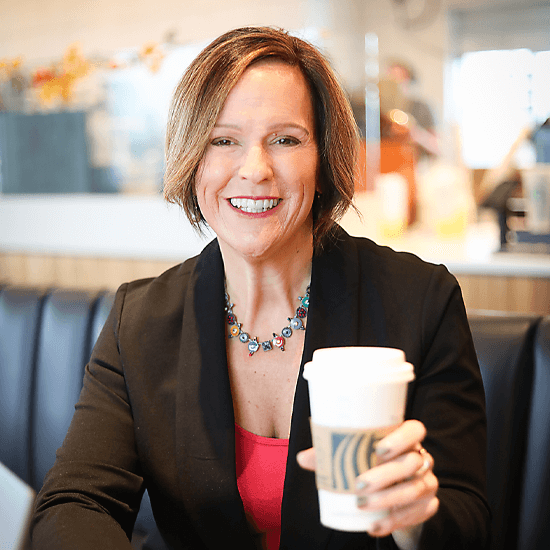Flores Advisors delivers customizable Diversity, Equity, and Inclusion training solutions that are tailored to meet your staff’s learning needs while ensuring compliance with industry regulations and fostering an inclusive workplace culture.
We empower staff professional development and build organizational capacity in diversity, equity, and inclusion by optimizing processes and structures to foster a more inclusive, equitable workplace.
Explore our Comprehensive Course Catalog to discover a wide range of professional development opportunities in diversity, equity, and inclusion. Whether you’re looking to enhance individual skills or strengthen your organization’s DEI initiatives, our courses are designed to meet your needs.

Foundational, 60-90 mins
Diversity is a concept that holds different meanings for different individuals, shaped by personal experiences and context. Similarly, organizations may interpret diversity in various ways. This module invites learners to explore a shared understanding of diversity, define culture, and discover how to create an inclusive environment. By reflecting on their own unique cultural backgrounds, participants will gain insight into how their personal diversity contributes to the broader organizational culture, enriching its fabric.
Objectives
Foundational, 60-90 mins
This workshop explores the concept of unconscious bias, both on a personal and systemic level, with a focus on its impact within the healthcare environment. Learners will have the opportunity to examine their own blind spots and professional biases, while discovering actionable strategies to mitigate these biases and enhance decision-making and interactions. By increasing self-awareness and understanding the broader organizational dynamics, healthcare professionals will be better equipped to foster equitable and inclusive environments for patients and colleagues alike.
Objectives
Foundational, 60-90 mins
This workshop introduces cultural humility as a foundational principle for fostering effective cross-cultural communication and collaboration, particularly in healthcare settings. By exploring the intersections of cultural humility, trauma, and health equity, participants will gain insight into how their approach to cultural competence can be transformed to better support diverse populations. This workshop will challenge learners to view cultural humility not just as a skill, but as a continual journey of self-reflection and growth, ultimately contributing to trauma-informed healing and a more equitable healthcare system.
Objectives
Foundational, 60-90 mins
This workshop introduces the “5 Steps toward Effective Cross-Cultural Communication” model, designed to help participants build the awareness and skills needed to navigate and resolve cultural challenges. As learners progress through the model, they will gain a deeper understanding of both their own perspective and the perspective of others, fostering a sense of acknowledgment and mutual respect. This approach encourages meaningful conversations over confrontations, ultimately leading to shared power and more effective cultural exchanges. By practicing these steps, participants will develop the tools necessary for achieving culturally competent interactions in diverse settings.
Objectives:
Foundational, 60-90 mins
Discrimination in healthcare remains a significant issue for LGBTQ+ individuals, with clear evidence of barriers to access and disparities in the quality of care. These challenges underscore the importance of training healthcare providers at all levels, from policymakers to direct-care staff, in providing culturally competent, patient-centered care for LGBTQ+ communities. This course will explore the foundational concepts of sexual orientation and gender identity, emphasize the importance of using respectful and accurate terminology, and offer practical strategies for fostering inclusive and supportive healthcare environments. Through video discussions and real-world applications, learners will identify actionable changes they can implement in their own practice settings.
Objectives:
Intermediate, 60-90 mins
Negative micro-messages are subtle, everyday verbal, behavioral, or environmental cues—whether intentional or unintentional—that convey hostile, derogatory, or dismissive attitudes toward members of marginalized groups (Nadal, 2008, p. 23). This course will encourage open discussion, critical thinking, and self-reflection, offering practical strategies to minimize or eliminate harmful micro-messages in the workplace. Participants will also explore various approaches to fostering an environment of respect, inclusivity, and empowerment, ensuring that all individuals feel valued and supported.
Objectives:
Intermediate, 60-90 mins
This session delves into the complexities of cross-cultural dynamics, exploring interactions at various levels—from individual relationships to organizational and societal systems. Participants will gain insight into how differences in culture, race, and socioeconomic status shape communication and understanding. The course will also examine stereotypes and the sociopolitical factors that influence these dynamics, with a focus on how power, privilege, and historical context impact cross-cultural exchanges.
Objectives:
Intermediate, 60-90 mins
The World Health Organization (2017) defines social determinants of health as “the conditions in which people are born, grow, work, live, and age, and the wider set of forces and systems shaping the conditions of daily life.” Social determinants include factors such as housing stability, food access, healthcare availability, public safety, social support, financial security, education, and discrimination. Addressing these determinants in healthcare settings is crucial for understanding and tackling the root causes of health disparities. This course aims to raise awareness among healthcare professionals about how these factors impact health outcomes, especially for underserved populations, and offers strategies to improve health and healthcare delivery by addressing social determinants within communities.
Objectives:
Intermediate, 60-90 mins
Every year, thousands of refugees fleeing war, persecution, and violence are resettled in cities across the United States, starting a new chapter in their lives. Unlike other newcomers, refugee integration begins in the country of asylum, with initial orientation and cultural preparation that continues once they arrive in the U.S. However, recent arrivals often face specific language, cultural, and resettlement challenges. Given the trauma many refugees have experienced—often spanning years of violence and persecution—care providers and service organizations must adopt a trauma-informed approach. This course will explore culturally sensitive strategies, communication models, and practical approaches for engaging immigrant and refugee families, while emphasizing the importance of understanding their unique needs and experiences.
Objectives:
Intermediate, 60-90 mins
Transgender identities continue to be pathologized through the Gender Dysphoria diagnosis in the DSM-V, a requirement for accessing gender-affirming care such as surgery, hormone treatments, and insurance coverage (American Psychological Association, 2018). This course aims to equip healthcare professionals—across medical, mental health, public health, and educational fields—with a deeper understanding of the complex identities and experiences of transgender and gender non-conforming youth. It will emphasize the importance of using appropriate terminology, and how to navigate preferred names and pronouns in ways that create inclusive and affirming environments. Participants will explore the challenges faced by transgender youth, trends impacting their well-being, and effective strategies to support their healthcare needs.
Objectives:
Intermediate, 60-90 mins
This session is designed to help healthcare and program administrators better identify and address the cultural and language needs of Limited English Proficient (LEP) populations. It will focus on creating effective systems of care delivery that meet both the cultural and linguistic needs of patients while complying with the regulatory requirements for language services. Learners will review tools and resources available to enhance language access and explore the infrastructure necessary to provide culturally and linguistically appropriate services. The session will also explore how healthcare providers can collaborate with interpreting staff to improve service delivery.
Objectives:
Intermediate, 60-90 mins
This workshop is designed for both formal and informal leaders seeking to foster inclusive environments within their teams and organizations. It will explore the critical elements of organizational culture and leadership styles that promote diversity, equity, and inclusion (DEI), while instilling a sense of belonging for all team members. Through interactive discussions and case studies, participants will learn how inclusive leadership practices can drive positive organizational change and create environments where all individuals feel valued, respected, and empowered. This session will also highlight the importance of self-awareness and intentional leadership in cultivating an inclusive workplace.
Objectives:
Advanced, 60-90 mins
This workshop is designed to explore the concept of racism, with a focus on identifying and understanding how structural racism permeates our social systems. Participants will engage in critical self-reflection to recognize their own contributions to systemic racism and will explore ways to actively challenge and dismantle these structures both personally and organizationally. The session will provide tools and strategies for transitioning from a passive stance of being “non-racist” to an active, intentional position of being “anti-racist.” By engaging in discussions, video examples, and actionable strategies, learners will gain the knowledge and skills to create more equitable and inclusive environments.
Objectives:
Advanced, 60-90 mins
This workshop focuses on the critical role of being an active bystander and ally in promoting inclusivity and social justice. Participants will learn strategies for safely intervening in situations of discrimination, harassment, or exclusion, while also exploring how to be a supportive ally to marginalized groups. The session emphasizes the importance of using one’s voice and actions to create safer, more equitable environments for everyone.
Objectives:
Foundational, 60-90 mins
This workshop is designed to equip healthcare professionals with the skills to provide culturally responsive customer service, with an emphasis on creating an inclusive and respectful environment for all patients. Participants will learn strategies for understanding and addressing cultural differences in healthcare settings, while also gaining foundational knowledge in providing affirming care for LGBTQ patients. By integrating cultural competence and LGBTQ-specific care principles, participants will enhance their ability to deliver high-quality, patient-centered service to diverse populations.
Objectives:
Specialty Clinicians - Intermediate, 60-90 mins
This workshop focuses on providing culturally responsive clinical care in maternal and labor & delivery healthcare settings, with an emphasis on inclusive and respectful practices. Participants will learn how to integrate culturally competent care alongside the use of Respectful Maternal Healthcare clinical practice guidelines, ensuring that all patients—regardless of background—receive high-quality, individualized care. The session also covers foundational knowledge on providing affirming care for LGBTQ individuals, addressing their unique needs in maternal healthcare settings.
Objectives:
Advanced, 60-90 mins +
This series of advanced learning modules is designed for professional healthcare interpreters seeking to enhance their skills and knowledge to maintain certification and stay current with industry standards. The modules will cover a range of essential healthcare topics, focusing on both technical language and cultural competency in medical interpreting. Participants will engage with real-world scenarios, legal and ethical considerations, and specialized terminology across various healthcare settings, from emergency care to mental health services. The goal of these modules is to equip interpreters with the advanced tools and strategies needed to provide high-quality, accurate, and culturally sensitive interpretation, ensuring optimal patient care and communication in diverse healthcare environments.
Learn the specific terminology, protocols, and stress management techniques required for effective interpretation during high-pressure situations in emergency care.
Examine the ethical principles, legal requirements, and confidentiality standards that apply to healthcare interpreters, with an emphasis on maintaining neutrality and avoiding conflicts of interest.
Explore strategies for navigating cultural differences in healthcare settings, understanding patients’ unique needs, and fostering an environment of respect and inclusion through language.
Delve into specialized terminology and techniques for interpreting in mental health settings, including considerations for trauma-informed care and sensitivity to mental health conditions.
Focus on the language and communication challenges specific to pediatric and geriatric patients, and learn how to effectively engage with these populations while considering their developmental and cognitive differences.
Learn how interpreters can help address barriers to healthcare access related to language and social determinants of health, and understand how to advocate for equitable care for diverse patient populations.
Key Features:
By completing these modules, healthcare interpreters will deepen their expertise in complex medical topics, stay up to date with evolving standards in healthcare communication, and continue to provide critical language access in a variety of healthcare contexts.
